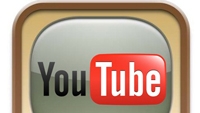YouTube wins copyright infringement lawsuit over Viacom

In a case with major implications for Internet sites that use content uploaded by users, Google’s YouTube last week won its $1 billion lawsuit against Viacom. A federal judge in New York granted Google’s motion for summary judgment, saying YouTube was shielded from Viacom’s copyright claims by the “safe harbor” provisions of the Digital Millennium Copyright Act.
It was a major victory for YouTube, the top Internet video-sharing site, and other websites ranging from Facebook to the smallest blogs. The “safe harbor” provisions generally protect a website from liability for copyrighted material uploaded by its users as long as the operator of the site takes down the material when notified by its rightful owner that it was uploaded without permission.
Viacom sued YouTube in 2007 and accused it of copyright infringement after tens of thousands of Viacom videos were uploaded to the site. Viacom argued that YouTube was not entitled to the safe harbor provisions because it had deliberately turned a blind eye to the piracy.
However, Judge Louis L. Stanton of U.S. District Court for the Southern District of New York said while YouTube did know that copyrighted material had been uploaded to its site, it did not know which clips had been uploaded with permission and which had not.
Forcing YouTube to police every video uploaded to their sites “would contravene the structure and operation of the D.M.C.A.,” Judge Stanton wrote, using the shorthand for the Digital Millennium Copyright Act.
“The present case shows that the D.M.C.A. notification regime works efficiently. When Viacom over a period of months accumulated some 100,000 videos and then sent a mass take-down notice on February 2, 2007, by the next business day YouTube had removed virtually all of them,” Judge Stanton wrote.
Internet companies were pleased with the decision, saying it would protect not only YouTube but also other sites that host user-generated content. “This is a victory for the Internet and for the people who use it,” Kent Walker, Google’s general counsel, told “The New York Times.” “The decision will let a whole new generation of creators and artists share their work online.”
Get the TV Tech Newsletter
The professional video industry's #1 source for news, trends and product and tech information. Sign up below.
Viacom, the owner of Comedy Central, MTV and Nickelodeon, said it would appeal the ruling. “Copyright protection is essential to the survival of the creative industry,” Michael Fricklas, Viacom’s general counsel, wrote in a blog post. He said YouTube had built itself on pirated material and sold itself to Google for $1.65 billion.
“YouTube and Google stole hundreds of thousands of video clips from artists and content creators, including Viacom, building a substantial business that was sold for billions of dollars,” Fricklas said.
Legal experts, however, said that the ruling blessed YouTube’s practices for dealing with copyrighted material, as well as those of many other sites that handle user-generated content in a similar fashion.
“The ruling should give online service providers a lot of comfort that copyright owners aren’t going to be able to force them to change their behavior or put them on the hook for problems that their users create,” Eric Goldman, director of the High Tech Law Institute at the Santa Clara University School of Law, told the newspaper.
